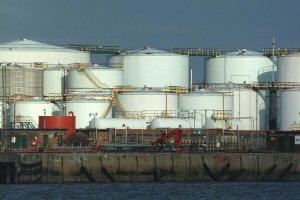An April 7 report in Reuters noted that a surge in oil buying by China’s newest crude importers has created delays of up to a month for vessels to offload cargoes at Qingdao port, imposing costly fees and complicating efforts to sell to teapot refiners. China’s independent refiners, known as teapots for their relatively low complexity, have been freed of government constraints after securing permission to import in 2015.
They are now going after plentiful low-cost crude available throughout the world. This has created delays for tankers that have quadrupled to between 20 to 30 days at Qingdao port in Shandong province, the key import hub for the teapots, according to port agents and ship-tracking data.
“Imports were blocked for some time by their increasing demand this month,” one trader said of the teapots. Buyers, the trader added, “are suffering from the block – there is lots of demurrage,” referring to costs a charterer pays to the shipowners if a cargo fails to unload at the specified time.
February imports to Qingdao hit a record 2.3 million barrels per day (bpd), according to Energy Aspects, with March figures expected to record another increase. The February imports into the port were about 29% of China’s intake that month, based on China customs data.
The strong demand is stretching the port’s facilities, with shipping data on the Thomson Reuters Eikon terminal showing that at least 15 tankers – very large crude carrier (VLCC) and Suezmax vessels – are currently waiting to offload at Qingdao, many of which were scheduled to deliver last month. Adding to the congestion is a lack of pipeline access to the teapots from the port, meaning that about 80% of the oil they buy has to be delivered by truck. This makes it hard to clear the imports quickly enough to make room for the next deliveries. Additionally, a lack of storage space at the terminal means tankers cannot easily offload and sail on to make other deliveries.
The Reuters report also noted that tanker traffic jam outside Qingdao is one of several bottlenecks in the global oil sector that have pushed up tanker rates as vessels are held up in the queues. A similar tanker backlog has built up outside the Iraqi port of Basra, and smaller jams have also been reported at China’s Ningbo and Tianjin ports, to the south and north of Qingdao, respectively.
The congestion in Qingdao has caused tankers to divert to other ports, while at least one VLCC has split its 2 million barrel cargo between two ports in China, a European ship broker and ship tracking data showed. Qingdao’s congestion may get worse as more vessels are on the way.
Exports loading for China from West Africa in April are expected to rise to a 19-month high of 1.14 million bpd, driven in large part by teapot buying. Norwegian oil firm Statoil has already sold some 4 million barrels via two tankers ex-ship at Qingdao to teapots that will arrive in April, and it has booked a third VLCC to sail to the port. Charterers like Statoil will normally bill the buyers for the demurrage costs, ship brokers said. “Otherwise, the price of crude is so low now that $65,000 per day demurrage for 10 days will wipe out a chunk of the trader’s profit,” a Singapore-based supertanker broker said. The delays – and the costs associated with them – could put a chill on the refiners’ demand for now.








Leave a Reply
You must be logged in to post a comment.